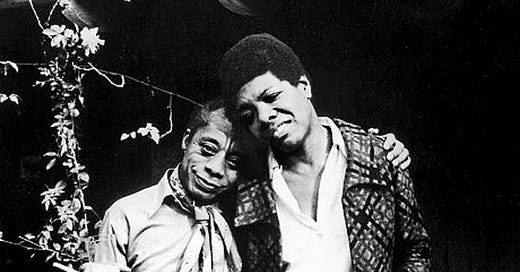So there’s this James Baldwin interview from 1979 that I can’t stop watching. It’s a 20/20 segment from 1979, which only just resurfaced in 2021. The segment was initially scrapped by ABC executives before it could hit primetime. The executives, when asked at the time by producer Joseph Lovett why it still hadn’t aired months after it had been shot and edited, responded to his question with another question:
“Who wants to listen to a Black gay has-been?”
This of course is a wild thing to say about Baldwin, wilder still when you watch the segment and find that he is powerful, impassioned, salient in his message and point of view. There is a particular image in the interview that I keep fast-forwarding to, footage of Baldwin lecturing student reporters at the Police Athletic League’s Harlem Center. The author sits, a sermonizing island surrounded by a quiet sea of young people. A boy in the crowd asks him if there is any chance for the Black writer.
Baldwin looks the boy in the eyes and answers: “Nobody wants a writer until he’s dead.”
This sentence has been all over my mind since I first heard it. Because it’s true, isn’t it? A dead writer is easier to control, to contain, to censor, to ban, to willfully misinterpret. A dead writer is easier to deify and and sanitize and martyrize, too. With dead writers, there is no need to engage with the pesky realities of their lives, their humanity. Instead, they can be flattened into a poster or a flyer, their careful words contorted into slogans. A dead writer, in other words, no longer belongs to themselves, but to other people’s imaginations.
Baldwin knew this before he died. In the 1970 documentary short Meeting the Man: James Baldwin in Paris he says:
“I’m in a position in which everyone in the world can claim me and has a right to claim me. I’m one of the very few dark people in the world who have a voice. That means something which no white writer can mean at this point in the world’s history. And I can’t really escape that. I don’t think I should even try.”





